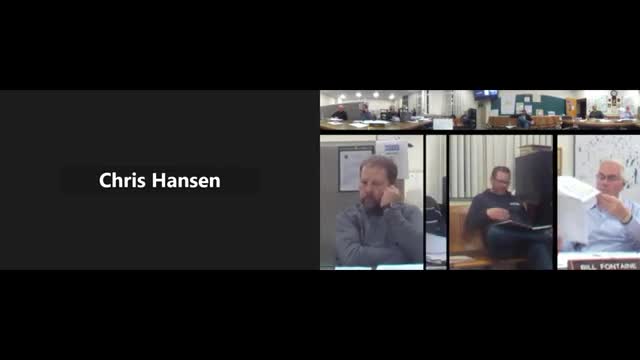Peer-review engineer outlines uncertainty in solar decommissioning costs; town to gather regional data
Get AI-powered insights, summaries, and transcripts
Subscribe
Summary
Graves Engineering updated the Planning Board on decommissioning-bond calculations for solar and battery projects, noting wide variations in estimates and recommending a detailed line-item approach and annual or scheduled re-evaluations of unit costs.
Graves Engineering provided an update on peer-review work the firm is doing for the town, focusing on decommissioning-cost estimates for solar and battery-storage projects and the difficulty of setting consistent bond amounts.
Mike Andre of Graves Engineering told the board that decommissioning estimates in practice vary widely. He said a fixed dollar-per-megawatt rule is unreliable because sites differ in topography, equipment, salvage value and whether battery storage is present. He recommended a line-item approach that sums element-by-element removal costs (labor, fencing, concrete, hauling, hazardous-material handling) and separates salvage/recycling credits and unknown hazardous-waste disposal costs from the town’s surety calculation.
The firm also raised governance and monitoring issues: how to trigger decommissioning (for example, sustained low output or operator inaccessibility), how bonds are funded (Graves said current practice is often 25% cash plus 75% surety), and the administrative burden of tracking transfers of ownership and lapses in sureties. Board members and the applicant community discussed options for a predictable schedule of re-evaluation — for example, an annual or fixed-date review so applicants can plan for changes in prevailing unit costs.
Graves agreed to compile regional examples and recent decommissioning data for the board’s use. The board discussed whether to adopt a policy specifying a review schedule to reduce surprise adjustments for applicants and recommended the firm return with comparative figures and recommended language for a formal policy change.
